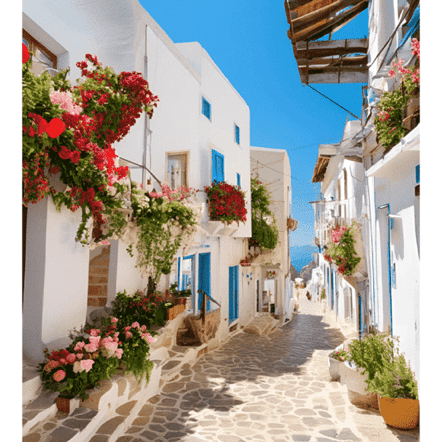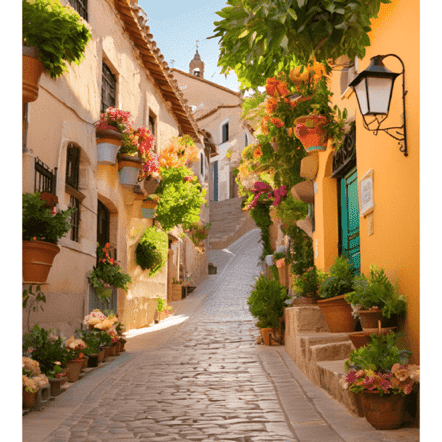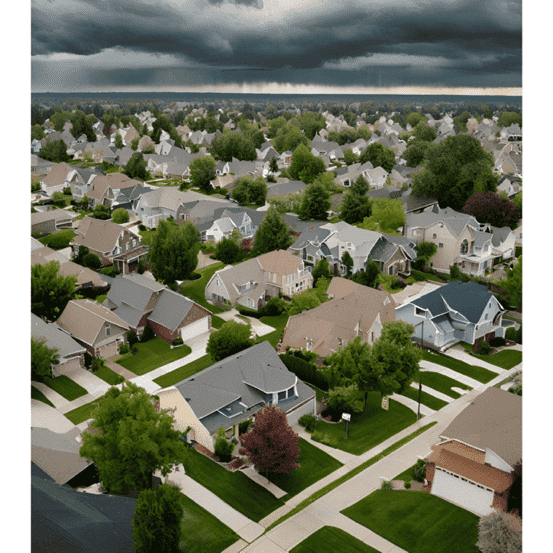Buy Land in Spain: A Foreigner’s Guide to Success
Discover essential tips for buying land in Spain as a foreigner. Navigate regulations and ensure a seamless purchase for your dream villa.
Are you contemplating the exhilarating venture of buying land in Spain to realize your dream villa? While this decision is undoubtedly monumental and thrilling, it is imperative to navigate the myriad of regulations and practices that differ significantly from those in Northern Europe. To ensure a seamless transaction, independent professional advice is essential to verify that your prospective land purchase adheres to legal standards.
The Importance of Professional Guidance
The unfortunate reality is that complications can arise during the land acquisition process in Spain. However, many of these issues can be circumvented with a fundamental understanding of the procedures involved and the insights of a seasoned architect. An architect will not only pose pertinent questions on your behalf but will also provide invaluable guidance throughout the process.
If you choose to enlist our services, we offer three pivotal components to facilitate your land purchase:
1. Architectural Consultation
We will assess the land in relation to your vision for the villa. To begin, we require photographs and details regarding the size and intended use of your future home. Prior discussions will help us align our understanding, and ideally, we should conduct an on-site meeting to delve deeper into your aspirations. Our evaluation will encompass solar orientation, scenic views, topographical features, and potential future developments by neighboring properties. We will also be vigilant for any concealed defects that could impede your plans.
2. Development Cost Appraisal
Following our site visit, we will prepare a comprehensive cost spreadsheet, which we will review with you online. While many figures will be estimates—given that design work has yet to commence—our familiarity with your vision and the land will yield reliable approximations. Each cost will be itemized to eliminate any unpleasant surprises down the line. This appraisal will also empower you to negotiate a fair purchase price for the land, calculating its residual value by deducting all costs from the projected final value of the villa.
3. Planning Regulation Review
Planning regulations can vary significantly between municipalities and individual plots. We will clarify essential factors such as maximum building height, boundary distances, and allowable square footage. Our team will obtain a cédula urbanística from the local town hall and verify the availability of essential services, including water, sewage, and electricity.
Equipped with this information, you will be better positioned to make an informed decision regarding the land purchase, ensuring that your plans align with legal requirements and your budget.
Understanding Planning Regulations
When buying land in Spain for development or renovation, it is crucial to familiarize yourself with the applicable planning regulations. Land is generally categorized into two types: urbano, which is designated for development, and rustico, which typically is not. However, the distinction is not always straightforward. Urbano land may be found in rural settings, while, under certain conditions, rustico land can be developed.
Each category contains subcategories and is subject to regional laws, which may be interpreted differently by local authorities. Engaging qualified local professionals to assess the situation is advisable to navigate these complexities effectively.
Building Restrictions and Regulations
Before finalizing your land purchase, ensure you obtain the town planning certificate (cédula urbanística or certificado urbanístico), which outlines the planning zone, permitted uses, and building specifications for the plot. Additionally, familiarize yourself with local building norms, including height restrictions, wall regulations, and occupancy rules.
It is essential to note that underground construction, such as basements, typically does not count toward permitted volume limitations, provided they are entirely below street level. However, this does not exempt them from construction fees. Other features, such as terraces and swimming pools, are generally excluded from these calculations.
Legal Considerations and Rights
In rural areas, property boundaries may be informally defined by natural markers, such as trees or painted rocks. If you are purchasing unfenced rural land, consider the potential implications of erecting a fence, as it may disrupt longstanding neighborly relations.
As of November 2015, any updates to the nota simple or catastral documents must include a topographical survey, a measure designed to rectify existing discrepancies. It is crucial to investigate any differences in land area across various documents, as these discrepancies could indicate illegal extensions or other issues.
Buying land in Spain is an exciting yet intricate process that requires careful consideration and professional guidance. By understanding the regulations, engaging qualified professionals, and conducting thorough due diligence, you can navigate the complexities of land acquisition with confidence. Remember, investing in expert advice today can save you time, money, and potential headaches in the future.
Buy Land in Spain: A Foreigner’s Guide to Success
Greece: Europe’s Fourth Cheapest Real Estate Market
Greece: Europe’s Fourth Cheapest Real Estate Market
Explore why Greece stands out as one of Europe’s most economical real estate markets, attracting savvy investors seeking value and opportunity.

Surge in Scottish Home Sales: UK Real Estate Update
Surge in Scottish Home Sales: UK Real Estate Update
Scottish home sales and enquiries surged in October, with a third of surveyors reporting the fastest growth in years, signaling a vibrant market.

Spain: A Leading Market in European Real Estate
Spain: A Leading Market in European Real Estate
Explore how Spain is becoming one of Europe's most promising real estate markets, excelling in retail, logistics, and hotel sectors for strategic growth.

Greece Real Estate Market: Rise of Serviced Apartments
Greece Real Estate Market: Rise of Serviced Apartments
Explore the growing demand for serviced apartments in central Athens, where integrated hospitality services attract savvy investors in the Greece real estate market.

Home Prices Hit by Climate Change, J.P. Morgan Warns
Home Prices Hit by Climate Change, J.P. Morgan Warns
J.P. Morgan analysts reveal a negative link between climate risk and home price appreciation. Explore the emerging trends and their impact.


